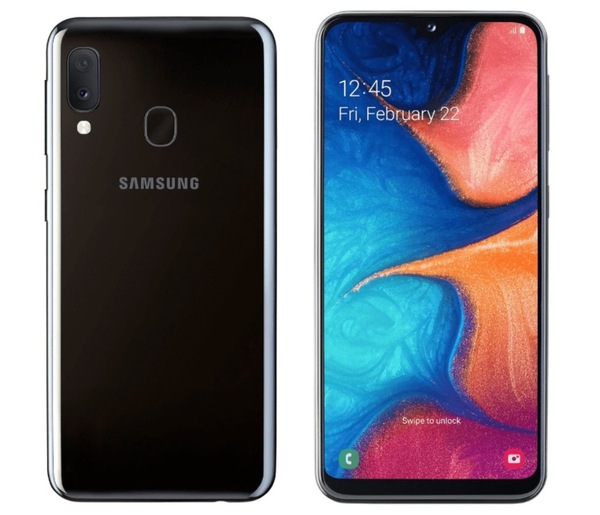- 10 Surprising Trends Transforming the Online Gaming Experience
- The Rise of Social Gaming
- Collaborative Gameplay
- The Role of Twitch and Content Creators
- Embracing Cross-Platform Play
- Fostering Inclusivity
- The Impact on Competitive Gaming
- Utilizing Virtual Reality
- Expanding Horizons
- Creating Cultures of Play
- Leveraging Artificial Intelligence
- Smart NPCs
- Predictive Analysis
- The Growth of Mobile Gaming
- Casual vs. Hardcore Gamers
- Impact on Game Development
- The Emergence of Blockchain Technology
- Gaming Economies
- Challenges and Considerations
10 Surprising Trends Transforming the Online Gaming Experience
The landscape of online entertainment has undergone dramatic changes over the last decade. Integrating cutting-edge technology with user-centric design principles, the online gaming medium has evolved into a multifaceted platform that offers not just games but immersive experiences. One remarkable aspect of this transformation is the adoption of unique interfaces and innovative features, such as those found in platforms like Pinco. As we delve into these trends, we will explore how they have redefined player engagement, community building, and overall user satisfaction.
In this article, we will highlight ten surprising trends reshaping the online gaming experience. Each trend not only showcases technological advancements but also reflects a growing understanding of player needs and preferences. Gamers today are no longer merely passive participants; they are active co-creators in their gaming journeys. A vibrant community fosters interaction and collaboration, making gaming an increasingly social experience. This is evident in the numerous platforms available that facilitate such interaction.
Moreover, the rise of mobile gaming has democratized access to gaming experiences, allowing players from various backgrounds and demographics to participate actively. This has led to a diverse gaming community that transcends traditional boundaries. With the focus shifting toward inclusivity and accessibility, developers are encouraged to create games that cater to a wider audience. As a result, we see a growing number of game titles that embrace different cultures, narratives, and gameplay mechanics.
As we navigate through the following segments, we’ll uncover the specifics of each trend and gain insight into how they influence player experiences. From technological innovations to shifting gaming cultures, these trends provide a fascinating lens through which we can evaluate the future of online gaming.
Let us embark on this exciting journey of discovery and celebration of the vibrant world of online gaming, marked by the unique contributions of platforms like Pinco, which exemplify these transformative trends.
The Rise of Social Gaming
Social gaming has become a dominating influence in the online gaming industry. With the integration of social features, gamers can connect, compete, and collaborate with others from across the globe. This heightened sense of community has redefined how individuals interact with games and each other. Traditional gaming is now augmented with social elements such as leaderboards, team missions, and collaborative quests.
Many platforms are adopting social features to enhance player engagement, making gaming a shared experience rather than a solitary pastime. Players can easily form connections, discuss strategies, and organize gameplay sessions. As a consequence, socialization has become a crucial aspect of gaming, driving user retention and satisfaction.
| Leaderboards | Encourages competition and engagement among players |
| Team Missions | Fosters collaboration, enhancing the gaming experience |
| User-generated Content | Allows players to contribute, increasing investment in the game |
Collaborative Gameplay
One key aspect of social gaming is collaborative gameplay. Games can now host cooperative modes that allow players to interact dynamically. This collaborative experience not only enhances gameplay but also builds relationships among players. Strategies are formed together, leading to a sharing of ideas that can elevate one’s skill level.
Furthermore, this trend encourages developers to create more inclusive environments, which benefits players of varying skill levels. A more accessible approach to gaming aids in attracting a larger audience, thereby promoting diversity within the gaming community.
The Role of Twitch and Content Creators
As platforms with social dimensions gained momentum, content creators, particularly on platforms like Twitch, have significantly influenced gaming trends. They contribute to a vibrant streaming culture where personalities become embedded in gaming communities. Gamers watch streams not just for entertainment, but also for learning and engagement, deepening their connection to the game.
Such interactions transform gaming into a viewing sport, with live feedback loops enhancing the experience. Gamers often imitate successful strategies seen in streams, driving engagement across platforms and fostering a robust community. These interactions make platforms such as Pinco more appealing as they promote streaming and community outreach.
Embracing Cross-Platform Play
Cross-platform play represents a significant shift in how players interact with games. This feature allows individuals on different devices to play together seamlessly, breaking down barriers that previously separated player communities. It encourages bigger pools of players, enhancing matchmaking experiences and overall gameplay satisfaction.
As this trend gains traction, developers are increasingly implementing cross-platform compatibility in new titles. This move reflects a growing recognition of the need for flexibility and convenience in gaming. Players’ preferences for diverse platforms can now be accommodated, allowing friends to game together regardless of their device.
Fostering Inclusivity
Cross-platform functionalities also promote inclusivity, as it welcomes players from various backgrounds and gaming experiences. It removes the limitations of exclusive platforms, allowing anyone with a compatible device to enjoy gaming with friends. By creating spaces where everyone can participate, the gaming community becomes broader and more diverse.
This inclusivity has the potential to reshape gaming cultures, leading to conversations around representation in gaming narratives and character designs. Developers are more aware than ever of the importance of inclusivity, contributing to a richer and more engaging universe for players to explore.
The Impact on Competitive Gaming
Competitively, cross-platform play has leveled the playing field, allowing players with different hardware and preferences to compete against one another. Gamers no longer feel restricted by their device choices; they can engage in tournaments and leagues without any hindrance. This elevation in competitive spirit contributes to a thriving eSports ecosystem.
The rise of cross-platform play is further bolstered by platforms like Pinco, which prioritize community engagement and connectivity. They recognize and embrace social aspects, knowing that players appreciate the chance to connect, communicate, and compete with their friends regardless of the platforms they prefer.
Utilizing Virtual Reality
Virtual reality (VR) continues to make waves within the gaming universe by offering unprecedented immersion and interactive experiences. In recent years, advancements in VR technology have allowed for enhanced sensory experiences, leading gamers to engage physically with the virtual world. This technology has transformed how players perceive the environment and interact with it.
The introduction of VR has redefined various genres, such as horror games and simulations. Players are no longer limited to screen interactions; they can embody the character and experience the game in a significantly more profound way. This trend contributes to deeper avatar connections, making emotional stakes more compelling.
Expanding Horizons
With VR becoming more accessible, developers are exploring a multitude of genres that could benefit from this immersive technology. Games that include exploration, realism, and social interaction are thriving within this space. By merging gaming with physical activity, developers can enhance not just engagement but also player well-being.
This shift leads to a potential reimagining of fitness within the gaming world. Gamers who might once have been sedentary can now engage in activities that promote physical health while enjoying their favorite pastimes. The momentum created by VR technologies serves to elevate gaming from mere entertainment to a lifestyle choice.
Creating Cultures of Play
The impact of VR on gaming culture cannot be understated. As more players embrace this technology, communities evolve around shared immersive experiences. Players form connections based on common encounters in virtual worlds, fostering a unique culture of play built on interaction and shared narratives.
Platforms such as Pinco recognize how critical personal and collective experiences are to the gaming community. VR contributes to a culture where shared narratives forge deeper bonds, leading to lasting friendships that extend beyond the virtual landscape. This cultural shift highlights the importance of innovation in creating meaningful gaming communities.
Leveraging Artificial Intelligence
The integration of artificial intelligence (AI) into gaming systems elevates user interaction by creating personalized experiences. AI-powered algorithms adapt gameplay based on player preferences, ensuring a unique experience with every session. This capability increases player engagement and satisfaction significantly.
AI not only enhances gameplay dynamics but also supports community building within games. Personalized recommendations can connect users with similar interests, cultivating a more robust community. This dynamic improves player retention as individuals find games and friends suited to their tastes.
Smart NPCs
Moreover, the deployment of AI allows non-player characters (NPCs) to behave more intelligently, making interactions within games more compelling and lifelike. Smart NPCs can respond to players with an array of emotions, enhancing narrative depth. This interaction brings forth a richer storytelling experience, captivating players on a whole new level.
Players are more likely to immerse themselves in storylines that feel responsive and fluid, allowing for deeper emotional connections. These advancements in AI enhance platforms like Pinco, where a focus on storytelling intertwines with interactive community engagements.
Predictive Analysis
Additionally, AI’s predictive analysis capabilities can assist developers in understanding player behavior and tailoring gameplay accordingly. Such data-driven decision-making enables the creation of games that resonate well with players, minimizing the risk of dissatisfaction or disengagement. By using analytics, developers can adjust game attributes to suit ongoing trends and community sentiments effectively.
The impact of AI on the community aspect of gaming is profound, supporting the ongoing conversation about developing interconnected ecosystems. As stakeholder engagement continues to rise, the importance of effective analytics cannot be overstated.
The Growth of Mobile Gaming
Mobile gaming has seen exponential growth, democratizing access to entertainment across diverse demographics. Today’s smartphones boast functionalities that allow for intricate gameplay experiences comparable to those on PC and gaming consoles. This advancement has made gaming more relatable and accessible than ever before.
Players no longer need high-end equipment or dedicated gaming setups to engage; they simply need a smartphone and an internet connection. The proliferation of mobile titles encourages overall participation from individuals who may not traditionally identify as gamers, thus expanding the community.
Casual vs. Hardcore Gamers
As mobile gaming continues to bridge the gap between casual and hardcore gamers, developers are encouraged to create a wide variety of game types. Simple, engaging titles can attract casual players, while more complex ones appeal to dedicated enthusiasts. This diversity ensures every player can find something enjoyable within the gaming ecosystem.
Platforms with easy accessibility and engaging content, such as Pinco, thrive in this environment. By attracting a varied audience, they can cultivate a rich community where individuals contribute broadly, from casual discussions to competitive insights.
Impact on Game Development
With this shift in gaming dynamics, developers have also adapted their strategies regarding game design. Mobile-first design choices require user interface considerations, battery usage, and data consumption, adding layers of challenge to the development process. Ensuring performance across various devices necessitates innovative thinking in all aspects of game design.
This trend marks a shift toward considering player comfort during gameplay, ensuring accessibility without compromising quality. Experience-rich titles on mobile platforms contribute positively to how individuals view online gaming.
The Emergence of Blockchain Technology
Blockchain technology is making its mark within online gaming, changing concepts of ownership, gameplay, and economic models. This technology introduces features like decentralization, transparency, and security to gaming ecosystems. As a result, players can now own in-game assets securely, leading to new economic opportunities.
The emergence of blockchain significantly enhances the value of in-game items, as players can buy, sell, and trade them on decentralized marketplaces. Such developments establish a new paradigm where virtual assets have tangible value, adding complexity to user engagement strategies.
Gaming Economies
The new economic model surrounding blockchain creates fascinating opportunities for player engagement, paving the way for innovative gameplay mechanics. Instead of traditional pay-per-play models, users can explore decentralized economies where user transactions can contribute to the game’s ecosystem.
This shift facilitates a more dynamic and interactive community experience, reflecting a keen interest in collaboration and trade. Platforms like Pinco leverage blockchain capabilities to create richer interactions, supporting user-generated economies and building a more vibrant community.
Challenges and Considerations
Despite the promising potential, challenges surrounding blockchain technology in gaming persist. Questions around regulatory compliance, security, and environmental impacts of blockchain mining must be addressed. Developers must navigate this arena carefully while striving to provide secure and efficient experiences.
By overcoming these challenges and embracing the changing landscape, online gaming platforms will establish lasting legacies. Blockchain can truly evolve interactive communities, transforming gaming from entertainment into an infinitely expandable universe.
Overall, the gaming experience is undergoing groundbreaking transformations fueled by emerging technologies and cultural shifts. As the industry continues to adapt, platforms like Pinco embrace these trends to cultivate interconnected communities. By harnessing social interaction, technological innovations, and player preferences, we can envision a bright and exciting future for online gaming.









